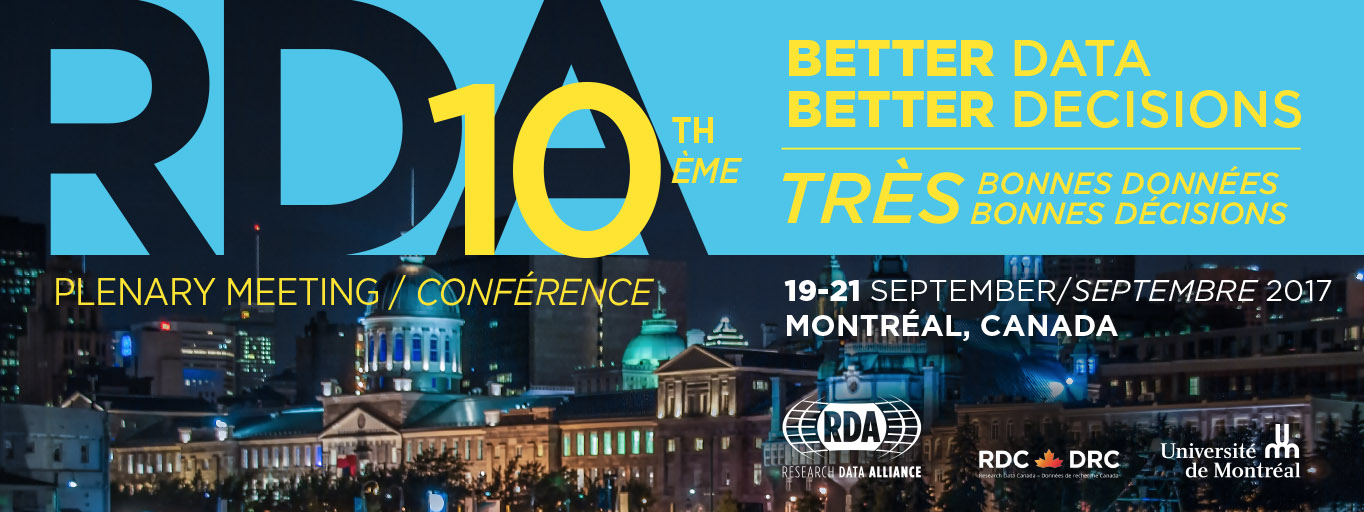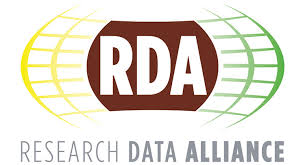Following the successful outcomes of the 9th Plenary in Barcelona, representatives of Lynkeus, gnùbila and Athena RIC are joining the 10th RDA Plenary Meeting, taking place from 19 to 21 September 2017 at Centre Mont-Royal in Montréal, Canada, co-organised by the Université de Montréal and Research Data Canada. The MHMD partners will animate two sessions launched within the last plenary meeting, namely the IG Health Data session entitled Health data mapping and diverging trends in health data protection, and the Health Data and Blockchain group Making use of Blockchain in dealing with Health Data, prosecuting the ongoing debate.

THE P10 MEETING
Officially instituted in 2016, the Health Data Interest Group (HDIG) is a rather mature RDA component focusing on the intricacies of health data, especially in relation to privacy and security issues in healthcare. The HDIG session at P10, moderated by Edwin Morley-Fletcher (Lynkeus President), will focus on mapping the health data domain and the diverging trends in health data protection. As the assessment of the scientific rigour of research-based information in scientific publications remains difficult despite increasing standards in reproducibility and reporting practices, the IG is trying to determine the strategy for maximising research reproducibility. This will be based on the RepeATFramework, a framework of essential elements to successfully report and reproduce scientific methods within biomedical research sciences, and a RepeATAutomator, a software application to interactively detect, extract, and evaluate text in published clinical literature against the RepeAT Framework. Furthermore, part of the session will be dedicated to analysing the enactment of the EU General Data Protection Regulation (GDPR) in regard to health data, in comparison to the current developments in other geographical areas.
The first session on Blockchain for Health, held within P9, highlighted a growing interest on the potential impact of this new technology in the health domain, particularly in regard to the possibility of reaching compliance with advanced data protection requirements (e.g. GDPR), in a seamless and efficient on a large scale. Taking into account suggestions from other IGs, this second BoF meeting – also chaired by Edwin Morley Fletcher – aims at defining possible other useful developments in other areas, also in view of establishing a dedicated Working Group.
ABOUT RDA
Research Data Alliance (RDA) represents a community-driven organisation launched in 2013 with the support of the by the European Commission, the United States Government’s National Science Foundation and National Institute of Standards and Technology, and the Australian Government’s Department of Innovation in response to the emerging needs of data-driven research. The main goal of this entity is, in fact, the development of technical, organisational and social infrastructures able to tear down barriers to the open sharing and exchange of data to foster science and innovation.
European Commission, the United States Government’s National Science Foundation and National Institute of Standards and Technology, and the Australian Government’s Department of Innovation in response to the emerging needs of data-driven research. The main goal of this entity is, in fact, the development of technical, organisational and social infrastructures able to tear down barriers to the open sharing and exchange of data to foster science and innovation.
The RDA mission is conveyed through Working Groups (WGs), with a lifespan of 12-18 months, and Interest Groups (IGs), operating without a time limit, while Birds of a Feather (BoF) groups are convened to gauge the interest in a new topic. The groups usually work online, in virtual meetings or at plenary sessions. RDA Plenaries are working events held every six months in different locations worldwide, rounding up a unique community of data scientists, librarians, computer scientists, and domain scientists, resulting in significant improvements in data sharing policies and practices across disciplines, technologies, and countries. Anyone agreeing with the RDA guiding principles and willing to contribute to the community can become an individual member simply by registering on the RDA website free of charge, while organisations can join RDA for an annual fee.
